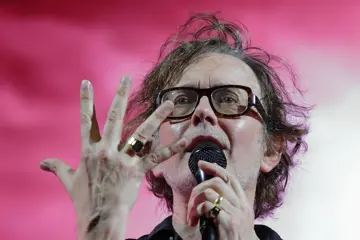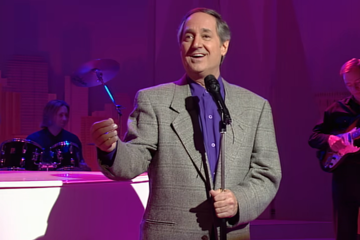The federal election takes place this Saturday (3 May), with polls opening last week for early and postal voters.
All 150 seats in the House of Representatives and 40 of the 76 seats in the Senate will be contested, while incumbent Prime Minister Anthony Albanese seeks re-election for a second term for his Labor government. Labor’s leadership is being challenged by the Liberal/National Coalition, led by Opposition Leader Peter Dutton.
As of February 2025, Labor retains 77 seats in the House of Representatives and 25 in the Senate, while the LNP has 53 (House) and 30 (Senate), The Greens have four (House) and 11 (Senate), and Independents have 13 (House) and four (Senate).
Major issues in this election include housing and an ongoing cost-of-living crisis, as well as climate change, crime, healthcare, protests against the devastating Israel-Hamas war, and tax cuts. But what are the major and more minor parties promising the Australian music industry ahead of the election?
With polling day rapidly approaching, The Music has rounded up the pledges of political parties for the Australian music industry.
At the time of publication, One Nation and Trumpet of Patriots have no stated policies on the arts, and neither has responded to The Music’s request for comment.
LABOR
Don't miss a beat with our FREE daily newsletter
Labor has stated that it will recommit to its Revive Live program, which Arts Minister Tony Burke pledged an additional $16.4 million to Australian live music venues and festivals.
The initiative was introduced last year with $8.6 million for venues and festivals. With the additional $16.4 million, Labor has brought its total pledge for live music to $25 million, allowing for infrastructure upgrades, programming, professional development programs, accessibility projects, and the creation of new touring circuits.
Labor has also announced its support for venues and festivals, including but not limited to Beyond The Valley, Yours And Owls, Lost Paradise, St Kilda Festival, Party In The Paddock, Brightside (Brisbane venue), Jive (Adelaide venue), Savannah In The Round, and a day on the green. Each will receive $100,000 in investment.
Tony Burke said: “Venues and festivals are under huge pressure at the moment. The Albanese Labor Government established Revive Live because music lovers should be able to enjoy local gigs, and artists should be able to make a career out of their music.
“Venue and festival owners across Australia have told me that Revive Live has provided the support they need to continue hosting and promoting live music. Gigs have always been a huge part of my life. I know the vital role live music venues and festivals play in providing local artists with the chance to perform, develop and grow audiences.”
THE LIBERAL/NATIONAL COALITION
The LNP has entered the 2025 federal election without an official arts policy. However, the Coalition’s Shadow Minister for Science and the Arts, Claire Chandler, made an arts-related pledge during the campaign.
Chandler has pledged to match Labor’s promise of investing $18 million in the Jewish Arts Quarter project in the Victorian suburb of Elsternwick.
THE GREENS
The Greens have pledged tax offsets for live performances, which will benefit touring artists, live performance venues, and theatre productions.
Commenting on the pressures on the Australian live music industry presented by the COVID-19 pandemic and the cost-of-living crisis, which have contributed to the closures of live music venues and a 70% decline in venue-based live music, the Greens call for a new type of support.
The Live Performance Tax Offsets will reduce upfront costs for venues, touring artists, and production, incentivising venues to host local artists and spotlight Australian art.
The Greens’ proposed tax offsets are estimated to drive an 18% increase in live performances in the first year, followed by a 35% ongoing increase. The Parliamentary Budget Office has costed the political party’s plan, which would see a whopping $700 million invested in live performances.
For live music venues, the Greens seek a 10% tax offset for the cost of hosting live music; for artists, they call for a 50% tax offset for travel expenses; and for theatre productions, they recommend a 40% tax offset for the costs of live theatre productions—similar to the screen producer offset.
The Greens have also shared their comprehensive arts policy, which includes paying artists fairly, valuing the arts in society, protecting artistic freedom, and sustainably funding the arts for the future.
Senator Sarah Hanson-Young said, “The arts play a critical role in telling the stories of Australia and our people - we must do whatever we can to keep these venues open and support the rise of local creatives.
“Investing in live events and performance is an investment into our local communities, small businesses and our tourism industry.
“After decades of underfunding under the Liberal Government and tinkering around the edges by the Labor Government - it is clear the Greens are still the party for the Arts.
“In addition to the Greens’ $2 billion investment in the sustainability and future of the arts over the next decade - this policy will deliver the support our arts industry need to thrive in 2025 and beyond.”
AUSTRALIAN DEMOCRATS
The Australian Democrats also have a comprehensive arts policy, with a plan that includes better funding for small and medium-sized festivals that are dealing with rising costs.
They also call for the resumption of funding to arts training colleges and Craft Australia (which was defunded in 2011), set quotas of 25% of Australian music on commercial radio and streaming services, and the removal of the 1% cap on what recording artists can receive from radio play.
Australian Democrats also pledge their support for promoting Indigenous Australian art, culture, voices, and stories, establishing an industry award under the Fair Work Commission for minimum pay rates within the music and arts industries, a basic income of $600 a week for up to 5,000 artists, writers, dancers, theatre-makers, and filmmakers, a program to employ artists in residence in schools, arts centres, and libraries, and tax deductions for philanthropic support for individual artists.
In addition to their arts policy, the Australian Democrats are campaigning on improving Medicare, science, and biodiversity, a coherent defence policy, freedom of information, recycling, and reducing plastic in the ocean, as well as addressing the cost of living.
SUSTAINABLE AUSTRALIA PARTY – UNIVERSAL BASIC INCOME
The Sustainable Australia Party is an independent party with a “science and evidence-based” approach to policy, with the mission to “de-corrupt politics” and create a fairer and more sustainable country.
Sustainable Australia has a dedicated arts policy that, while broad, speaks to the party’s commitment to spotlighting artistic creativity.
The party’s mission statement when it comes to music is to “better support the arts to allow all Australians to fulfil their creative potential.”
To help achieve this goal, Sustainable Australia will provide access to funding for community arts and cultural initiatives, which includes supporting artists negatively impacted by the COVID-19 pandemic, as well as an unconditional universal income (UBI) of $500 per week for every Australian.
The party also promises better protection of creative and intellectual rights, more support for local film and television productions, and protection of live music and arts venues from the adjacent construction of housing and property developments.
SOCIALIST ALLIANCE
While the Socialist Alliance’s arts policy doesn’t specifically mention music, its goals can be applied to any facet of the arts.
The party shares its support for developing emerging, mid-level, and established arts and culture workers and organisations by getting involved with local projects and productions. Like the Sustainable Australia Party and Australian Democrats, the Socialist Alliance also supports a guaranteed living income for arts and culture workers.
Socialist Alliance also makes mention of enforceable rights for arts and culture workers to decide how their work is used, improved access to and participation in the arts for those with disabilities or living in social and economic disadvantage (as well as regional and rural areas), the development of national, state, and regional archives, in addition to galleries, libraries, museums, and other institutions; increased funding and availability of licences for community media, open-source software to be used by government bodies, and supporting net neutrality, online privacy, and a bill of digital rights.
Music industry figures are hoping to see specific commitments from all parties heading into this election. They have launched the Vote Music initiative, which brings together 19 key industry organisations with a five-point ask for all parties.
The pillars are:
1. Supercharge Investment in Live Music & Industry Growth
Vote Music 2025 urges securing Music Australia’s future by increasing funding to develop and promote artists, grow exports, drive innovation, collect research, and install songwriting and recording initiatives in schools. It also calls for tax rebates for venues, festivals, and touring artists, as well as the expansion of Revive Live to support festivals, regional touring, venue infrastructure, all-ages shows, and new music pathways for young people.
2. Strengthen Creative Rights & Innovation
Vote Music 2025 aims to strengthen copyright and transparency in AI to protect artists and ensure fair compensation. It also calls for Indigenous Cultural Intellectual Property protections for First Nations music and culture, and for adjusting radio royalties by removing outdated caps.
3. Amplify Australian Music Locally and Globally
Vote Music 2025 recommends the modernisation of content quotas, prominence of Australian music on DSPs, the reviewing of Significant Australian Content (SAC) test and Australian Content and Children’s Television Standards (ACCTS) guidelines, commitment to a quota of Australian content on streaming video/demand platforms, ensuring Australian artists support international acts (following Michael’s Rule), and the introduction of an arena ticket levy to support grassroots music.
4. Strengthen Communities and Audience Growth
Vote Music recommends securing investment for Support Act, ensuring Australians can access music and creative opportunities through digital inclusion programs. It also supports public liability reform to help venues operate sustainably and workplace safety initiatives to create respectful work environments.
5. Expand Global Exports & Cultural Diplomacy
Last but not least, Vote Music 2025 calls for reciprocal cultural programs that strengthen ties with Indo-Pacific music markets, diplomatic and diaspora engagement, and export grants and visa support to make it easier for Australian artists to tour and build careers on an international scale.
















